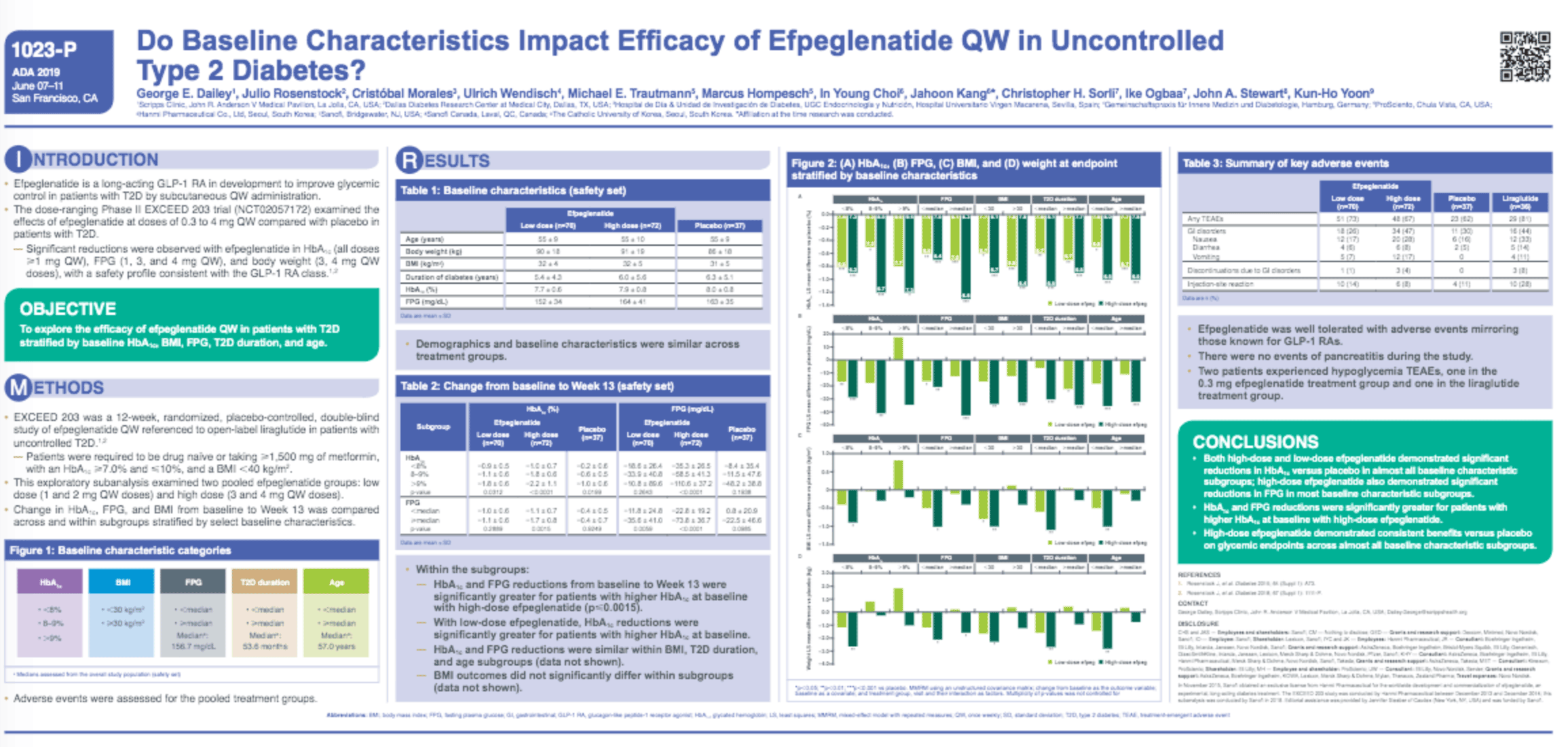About
About this Poster:
Once-weekly (QW), subcutaneous efpeglenatide (EFPEG) is a long-acting GLP-1 RA for T2D management. In EXCEED 203 (NCT02057172), EFPEG QW significantly reduced HbA1c vs. placebo (PBO) for early T2D (naïve/metformin monotherapy). This post hoc subanalysis explored the efficacy of EFPEG QW (pooled low [1 and 2 mg] or high dose [3 and 4 mg]) vs. PBO stratified by baseline characteristics: HbA1c (<8%; 8‒9%; >9%), BMI (<30; ≥30 kg/m2), FPG, T2D duration, and age (1c, FPG, and BMI from baseline to Week 13 was compared within and across baseline characteristic subgroups. Within subgroups, HbA1c and FPG reductions were significantly greater for patients with higher HbA1c at baseline with high-dose EFPEG (p≤0.0015) according to HbA1c and FPG subgroups; low-dose EFPEG followed the same trend in most cases. HbA1c and FPG reduction were similar for BMI, T2D duration, and age subgroups; BMI outcomes did not significantly differ within subgroups. There were numerically greater LS mean reductions in HbA1c and FPG from baseline vs. PBO, which were significant for high-dose EFPEG, for all subgroups (except HbA1c >9% for FPG; Table); reductions were greater with high-dose vs. low-dose EFPEG. For BMI, there was a trend for reductions vs. PBO with high-dose EFPEG (Table). In conclusion, high-dose EFPEG demonstrated significant reductions in HbA1c vs. PBO for all baseline characteristic subgroups.


